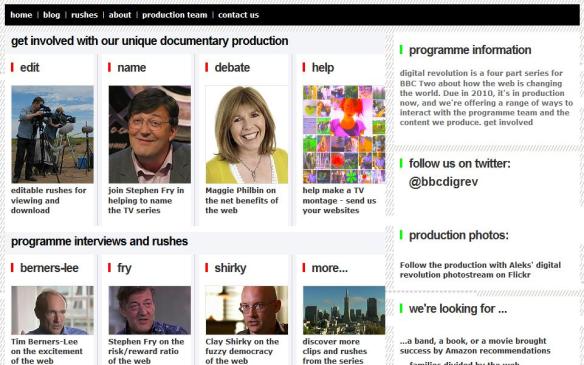Tim Berners-Lee talks on his TEDtalk about how he originated the World Wide Web. The memo he wrote about it was read by his boss (who after his boss’s death was found to have the words “Vague but exciting” written on it). I’m thinking of adopting that as one of my own taglines because of the amount of ideas I propose and receive little interest and even less understanding. (I’m not saying my own ideas are of Tim Berners-Lee’s scale of impact.)
It was a grassroots movement that launched the Web and it was this community that excited Tim. He asked people to put their documents onto the Web, and people did. In his words, “It’s been a blast.” Now he asks us all to put our Data onto the Web.
He refers to Hans Rosling, who also says that it’s important to have a lot of data available. I’d previously seen Hans Rosling’s TEDtalk and also his presentation on a BBC television programme. Tim is going further, however, with his concept of Linked Data, where everybody is putting everything on the web, and therefore virtually everything you could image is on the web. He asks for three things to be observed in this process:
- Everything has a http ‘name’ – events, products, things, people, etc.
- When someone fetches something with a http name it returns some standard data (information) in a format that people will find useful – something about the event, that person, etc.
- The data returned shows relationships; importantly the data has relationships and these related data also carry http names that allow them to be looked up, etc.
Google, Microsoft and Yahoo have agreed to use standardized formats for data as outlined at Schema.org
Another interesting phrase to come out of the videos is ‘Database Hugging’, coined by Hans. Tim demonstrated it as though he was actually hugging something with his arms. The idea is that people, governments, institutions don’t want to release their data until they’ve created a lovely website to display it. Tim says, by all means make a beautiful website, but first give us the unadulterated data, emphasized with the chanted phrase – ’Raw Data Now’.
‘Linked Data’ useful links:
- Material by Tim on this topic of Linked Data:
- Linked Data – http://www.w3.org/DesignIssues/LinkedData.html
- Slides from the TEDTalk (use arrow keys to scroll through) – http://www.w3.org/2009/Talks/0204-ted-tbl/
- Wikipedia entry for Linked Data
- Linked Open Data – The Essentials (pdf)
The site that draws together useful information about Linked Data is linkeddata.org
There you’ll find, amongst other things:
- Guides and Tutorials
- Key Reference Documents
- Textual Guides/Tutorials
- Video Tutorials
- Introductory Slide Sets
- Frequently Asked Questions
- Tools
- Linked Data Publishing Platforms/Frameworks
- Linked Data/RDF Editors and Validators
- Tools for Consuming Linked Data
- Linked Data Applications for End Users
A point that Tim makes in his video at t=11m30s is about the sharing of data to enable Open Science activities to occur, which links in nicely to the previous topic in the Openness in Education course about Open Science.
Tim Berners-Lee returns to do a short TEDtalk ‘updating’ the situation with Open Data:
http://www.youtube.com/watch?v=3YcZ3Zqk0a8
It is interesting to see that over this time we have witnessed more of a willingness by governments in areas across the world to share data openly in what has become know as Open Government or ‘opengov’. So in the US you have sites like the one in the topic readings, and in the UK you have ones including data.gov.uk from HM Government; a BBC interview with Tim Berners-Lee on the project that brought about data.gov.uk is available.
Areas of the media are making it easier and more convenient to use open data and allow individuals to interrogate and interpret the data to provide useful information to them. Examples being The New York Times in the US and The Guardian in the UK (which enables questions to be asked of government data from around the world). The Guardian also has a section online that is dedicated to the journalistic use of open data, called the Data Store.
